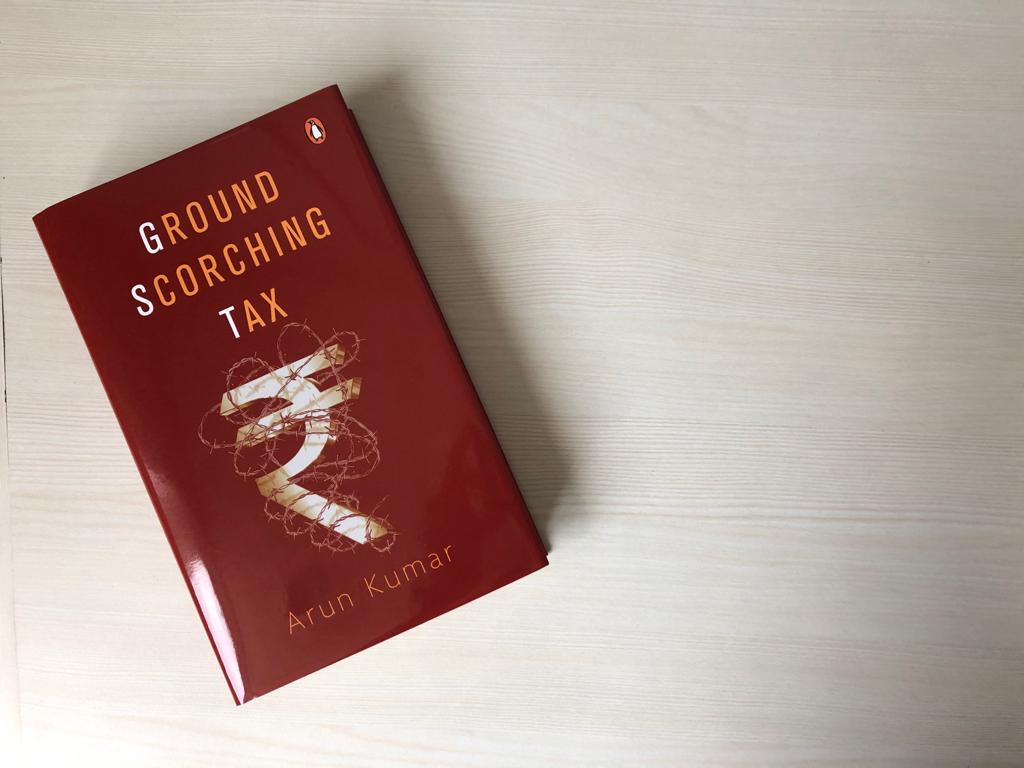
On 1 July 2017, Goods and Services Tax (GST) became a reality. The government hailed it as the biggest tax reform of independent India which would herald a new freedom for the nation and unify it with ‘One Nation One Tax’.
But why taxes? Here is an excerpt from the first chapter of Arun Kumar’s new book, Ground Scorching Tax to help understand the role of the Government in an economy and elaborates on the kinds of taxes.
GST is an indirect tax that is levied on goods and services. It is supposed to cover the entire chain of supply from raw material to the final stage of sale. By themselves, indirect taxes result in an increase in the prices of the goods and services on which they are imposed. So, why levy such a tax? And, what is the importance of putting a tax on goods and services?
In modern day economies, governments have to perform a variety of tasks which the markets are unable to perform efficiently. As societies have become more complex, the markets have not been able to perform many of the essential tasks and the public sector has been given a larger and larger role in the economy in most
countries. A key task in a poor country like India has been promoting development to overcome poverty and deprivation.
For a majority of the poor, the market does not provide a solution in crucial areas like education, health, drinking water, food, sewage and energy. So, the government has to provide these services in addition to what the individual cannot provide like defence, foreign policy, security and functioning of money. All these activities need to be financed and taxes are a source of revenue. So, people pay for the services that the government provides. In effect, services become available collectively rather than each one creating services on their own.
Kinds of Taxes: Direct and Indirect
GST has run into a plethora of problems from day one. But, there were difficulties with the earlier forms of taxes which were replaced by GST and that is why the need was felt for introducing the new tax. So, one could ask, why not do away with indirect taxes altogether. But then resources for running the government would be short. Are there other taxes that could substitute for indirect taxes? To understand whether one should replace one kind of taxes by another or not, it is necessary to understand the nature of the different kinds of taxes.
Broadly speaking there are two kinds of taxes—direct and indirect. Both fall on the income of the citizens but there is a difference as to how they work. As the name suggests, direct taxes fall on the income, the moment an income is earned. That is why they are called direct taxes. The indirect taxes fall on incomes when the goods and services are purchased/used.
Differences between Direct and Indirect Taxes
The implication is that direct taxes cannot be postponed while the indirect taxes can be postponed by not purchasing goods and services. As soon as an income is earned a direct tax becomes due. Due to this difference which at first glance appears to be small or inconsequential, the macroeconomic impact of these two kinds of
taxes on the economy is different.1 So, one is not equivalent to the other. Thus, one cannot replace direct taxes by indirect taxes without some (adverse) macroeconomic consequences.
Why do these differences arise when the tax is paid either way by the citizen? In the case of direct taxes, cost of production is not directly affected. It is paid on the income after costs are subtracted from the revenue earned. To explain better, let us consider this in greater detail. In the process of production, economic entities (individual and firms) earn an income—it can be profit or wage and salary. Out of profit, interest, rent and dividend are paid.
Profits are calculated as revenue minus costs, that is, revenue of the firm from the sales less the cost of production. When a tax (corporation tax) is levied on this business income, it does not change the cost of production. It only affects the firm’s income in hand (called disposable income). Similarly, when a worker gets a wage or a manager the salary, an income tax on this income does not impact the production cost. The employer does not adjust the wage or salary when the income tax changes (except in rare cases).
An indirect tax like excise duty or sales tax is levied on the value of the good or the service being sold and that raises the price of the good or the service. No wonder each time an excise duty is raised, the price of the good on which it is levied, rises. This leads to inflation and a fall in demand. All else remaining the same, indirect taxes are ‘stagflationary’, that is output stagnates while prices rise. No wonder, when the government wishes to stimulate the demand for a good, it cuts excise duty or sales tax on that item. During the global financial crisis starting in 2007, the Government of India cut excise duties.
In brief, indirect taxes add to the cost of a good or a service while direct taxes do not do so. Thus the former impacts production while the latter does not do so.
In this book, well-known economist Arun Kumar explains the reality behind GST. Known for not pulling any punches, the author explains why GST is a double-edged sword for the common man, why it will increase inequality across sectors and regions, why it will hurt small businesses-everything the government does not want you to know.









